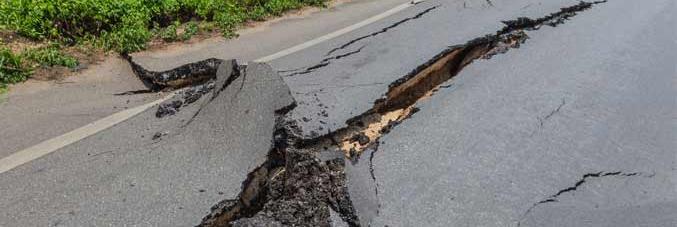
ROSA, the rotary shear machine that replicates geothermal fields and earthquakes
22.08.2023
Still today, researchers know very little about how man made or naturally occurring earthquakes develop or spread. One of the many reasons is the difficulty of reproducing such occurrences in a laboratory setting. Only under controlled conditions can researchers begin to investigate the effect of the physical state of water on fault friction in the seismic cycle.
Published in Nature Communications, the experiments found in the study entitled Physical state of water controls friction of gabbro-built faults used a newly developed rotary shear machine, known as ROSA, located in the Department of Geosciences at the University of Padua and at the Department of State Key Laboratory of Earthquake Dynamics at the Institute of Geology, China Earthquake Administration in Beijing. Knowing that earthquakes often occur along faults in the presence of hot pressurized water. The work shows that friction (or resistance sliding) between rocks can change based on the physical state of the water. Researchers found that resistance between experimental faults doubles when water passes from the supercritical and liquid state to vapor state. This especially occurs when rocks, such as in naturally formed fault lines, are made to slip by a few centimeters.
Coordinating this research, Prof Giulio Di Toro of the University of Padua Department of Geosciences explains, “We are particularly proud of the results obtained after years of work it took to develop this unique experimental machine together found in Padua with its twin installed in Beijing. The dedication carried out by the group of young international researchers would not have been possible without the contribution of the CARIPARO Foundation. Such financial support allowed us to purchase the ROSA experimental rotary shear machine in 2010 to study the seismic cycle in a laboratory setting. Much appreciation also goes to the Italian Civil Protection that supported the acquisition and development of the HYDROS hydrothermal cell to carry out experiments with hot and pressurized fluids (up to 450 °C and 700 atmospheres) between 2020 and 2022. Furthermore, the collaboration with the China Earthquake Administration in Beijing was fundamental, their support allowed us to carry out experiments in their laboratories when the HYDROS hydrothermal cell, due to the pandemic, was not yet operational in Padua."



